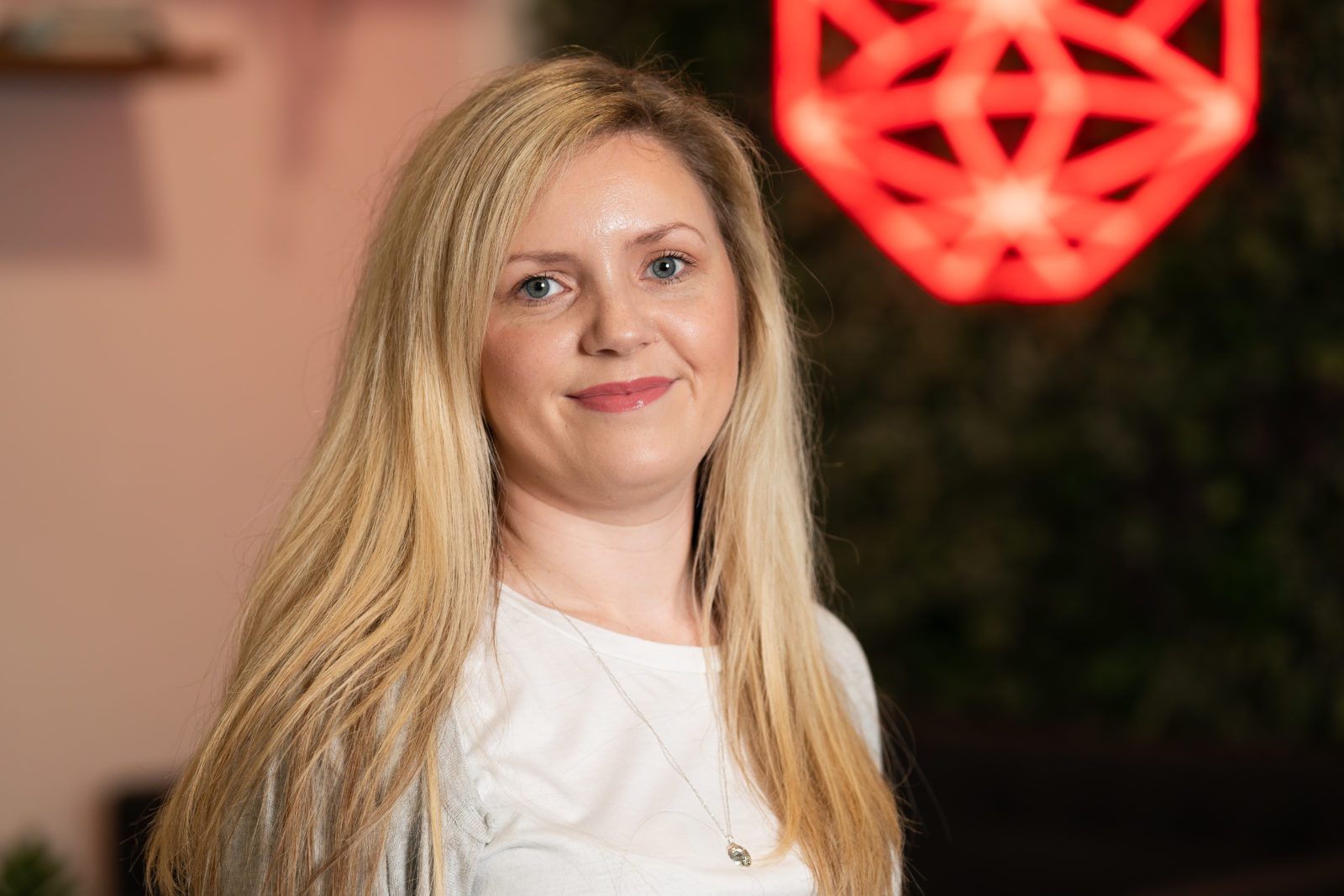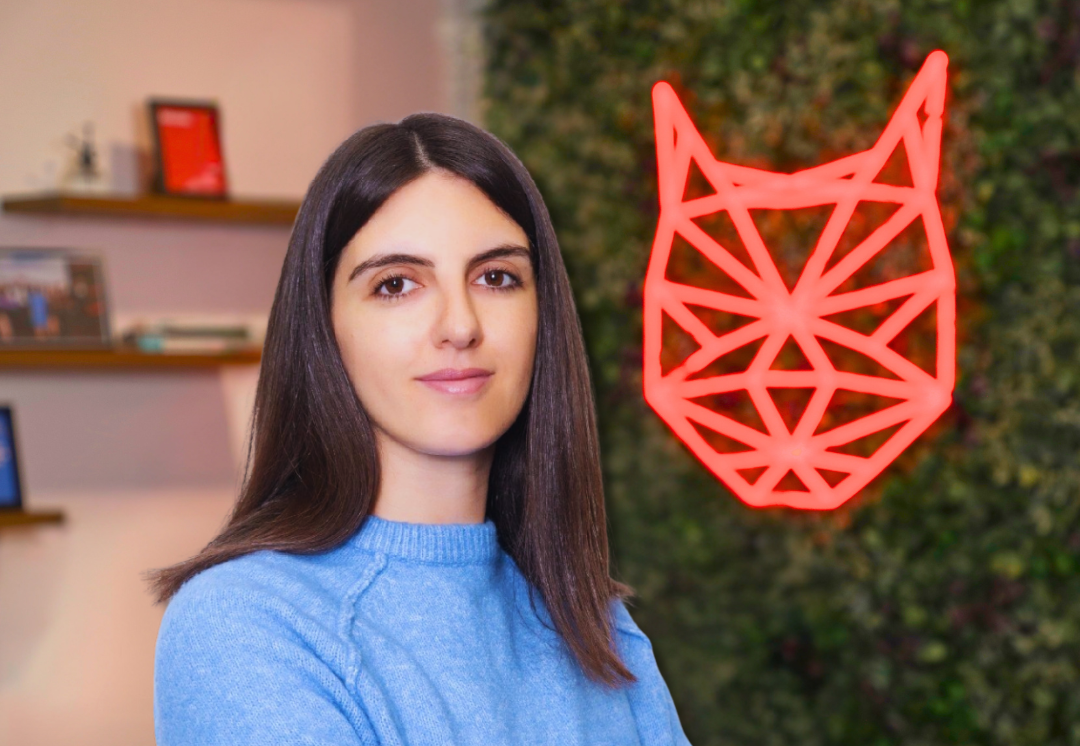Writing and producing completely new content takes a lot of time, and quite frankly, many website owners should be focusing their efforts elsewhere. So many business and website owners are sitting on a goldmine in the form of blogs and pages written years ago but have not been touched since – what a waste of your previous self’s time! So, does refreshing old content help with your SEO?
Short answer, yes! It’s no secret that Google favours fresh content because it usually provides more value to users. By updating on-page information, optimising keyword placement, and improving readability, you make your content more relevant and valuable, which can lead to increased organic traffic and better website engagement.
Read on to learn how to choose which old blogs have SEO potential, and receive a step-by-step guide on how to bring your content back to life.

Yes, updating content does help with SEO. When you update a blog, or service page, it demonstrates to Google that you are making an active effort to maintain and improve your site. Google sees this as a green flag for your website and often rewards it with higher rankings and more organic traffic.
Plus, it is generally much easier to get an old piece of content to rank with a few simple updates, rather than getting a new URL to rank from scratch – this yields better results in a shorter space of time.
Don’t just pick any old page to refresh, it could do more harm than good if you pick one that is performing really well already. Instead, invest your efforts into pages that have significantly dropped in clicks. There are a few ways to identify content that needs refreshing, which we deep dive into below:
Start by logging into Google Analytics, and selecting your website property. In the left-hand sidebar, click on ‘Reports’, and then ‘Engagement’. Underneath ‘Engagement’, click on ‘Landing Pages’.
At the top right corner of the screen, set the date range to compare the current period with the previous period. We’d recommend looking at data from the past 6 to 12 months, or even longer.
The table will show a list of pages with metrics such as Sessions, Users, and Engagement Time. Toggle the table so that it shows the URLs with the biggest drop in Users at the top. Make a note of the URLs with a significant decline in performance.
With Google Analytics, you’ll also be able to see which content has dropped the most based on channel. But, in this article, we’re primarily going to focus on optimising content for SEO.
If you aren’t super familiar with Google Analytics, you may find it easier to find URLs that have dropped in performance via Google Search Console – it’s a bit more user-friendly in our opinion!
On the left-hand side of your GSC dashboard, navigate to the ‘Performance’ section. At the top of the screen, click ‘Date’ and then ‘Compare’. Choose your chosen time period. In our opinion, 6 to 12 months is best, as this mitigates the risk of any seasonal trends skewing the data. Scroll down and click ‘Pages’.
From here, you can see which pages have dropped in organic performance. If you think they have the potential to be updated, add them to your list to optimise. If you click on the URL, you can also navigate to the ‘Queries’ tab, where you can see which keywords in particular have dropped. Make a note of these, too.
Data from Google Analytics or Google Search Console should form part of a wider content audit. After all, nobody knows your content like you do! We’d recommend manually looking through old blogs or landing pages (export the URLs using a tool like Screaming Frog), and manually flag any pages that you know contain outdated stats and statistics, or pages that your audience may consider to be old news.
Content naturally decays over time as it becomes less relevant or outdated, so it is important to schedule in time for regular maintenance of older pages. Consider a ‘content cocktail’ strategy – for every three new blogs/pages you write, update at least one old one. Here’s how to get started:
Some blogs won’t necessarily need much work done to them, but may just require a few new links, updated stats, and a better call to action. Some pages, however, may need a full rewrite and restructure. Use your judgement here, but as a guide, here are some areas to consider when refreshing your old content:
To learn more about writing content that Google loves, read this helpful blog: How Do You Write E-E-A-T Content?
Even the most well-written content won’t get read by users if the page looks dull. Invest time into updating images on your blog or landing page, creating relevant infographics, or even video content to help convey your message. Ensure your content is visually on-brand and well-formatted.
Break up large blocks of text with images, use optimised headings and subheadings, and ensure the content is easy to scan by users.

There is no point in updating a page if it isn’t as good as what’s already on the web. Take a look at the keyword you have chosen for the page you’re updating. Pop it into Google and see which pages come up first. How many FAQs do they have? Are any interesting stats or case studies used? Are there any engaging videos used on the page?
Ensure you match, if not exceed, the on-page quality of the content that ranks first for your chosen keyword. Much like the SEO Skyscraper Technique, you must also be able to add more value to the user than what already exists on the web if you want a page to rank well. This includes adding new ‘golden nuggets’ of information from your own opinion and expertise in the area.
Revise meta titles and descriptions to reflect the updated content. Invest time in writing an engaging title tag and meta description, encouraging users to click on your new and improved page. Where you can, add your target query to the title tag, as this can improve rankings for that specific keyword.
Understand how metadata can impact your site’s rankings in one of our helpful blogs: What Is Metadata In Layman’s Terms?
A great way to encourage Google Bots to crawl your new and improved page is to improve the number of internal links. Using the ‘site:’ search function, look for pages that mention your target query. Where it makes sense, add an internal link to the recently updated page. You should also add a call to action encouraging people to click through to learn more.
When used strategically, internal links can also pass authority (sometimes called ‘link juice’), further boosting SEO rankings.
Whilst it is likely that Google will eventually pick up the changes over the next few weeks or months, you can speed it along by ‘Requesting Indexing’ via Google Search Console. This pushes the page to the top of the Google Bot’s priority list and may help you see results just that little bit faster. Learn more about how Google reads your site in our recent blog: How Often Does Google Crawl My Site?
Whilst you’re in Google Search Console, do a quick review of your sitemap. Ensure the optimised URL is listed and not blocked by your robots.txt file.
Refreshing old content for SEO isn’t a one-and-done task. Once you’ve made your changes, keep an eye on the results. Even if the new page performs really well, make it a regular task to review and update the page at least once annually. The same applies to every page across your website!

If you feel like your content strategy has gone stale, get in touch with our content experts. With experience in B2B and B2C campaigns and a proven track record across a variety of industries, you can trust us to create a winning content strategy tailored to your business goals.
Get in touch today to arrange a free consultation and see how we can help you punch above your weight online.

Founder
Our founder, Will Hitchmough, worked at a number of high profile Sheffield Digital Agencies before founding Wildcat Digital in 2018. He brings an extensive knowledge of all things related to SEO, PPC and Paid Social, as well as an expert knowledge of digital strategy.
Digital Marketing can be a minefield for many businesses, with many agencies ready to take your money without knowing how to deliver results. I founded Wildcat Digital to deliver digital success to businesses with smaller budgets in a transparent way.

Head of Growth
Rich joined us in May 2024 to head up our growth team. With years of experience helping other agencies to grow, Rich joins us at an exciting time as Wildcat is working on a five-year plan to become one of the biggest agencies in the UK.
Outside of work, Rich is a father to three children, which keeps him very busy! He’s also recently started running again to keep fit and loves a bit of DIY.

Head of Digital
Sarah joined Wildcat in January 2025, bringing over seven years of SEO expertise to the team. With a background in Fashion Communication and Promotion, she has worked both in-house and at agencies, covering a range of digital marketing specialisms before focusing on SEO.
Passionate about all things search, Sarah thrives on helping brands grow their online presence.
Outside of work, she enjoys walking her dog, running, and shopping for vintage clothing.

Office Manager
Amelia joined Wildcat Digital in January 2025, bringing extensive experience in HR, Health & Safety, Facilities Management and IT Support. Previously an Operations Manager at The University of Sheffield, she has a strong background in creating efficient and well-organized work environments.
Specialising in HR, Health & Safety, and Facilities Management, Amelia ensures the Wildcat Digital team has the resources and support needed to thrive. Whether managing office operations, maintaining compliance, or fostering a positive workplace culture, she keeps everything running smoothly.
Outside of work, Amelia loves trying new things, traveling, camping, and walking. She also enjoys socialising and exploring new places with friends and family. Her adventurous spirit and proactive approach make her a valued member of the team.

Client Success Coordinator
Siena joined us in 2023 with a background in sales and digital marketing. She leads on client relationships across the company, ensuring that our customers are happy throughout their journey with us, from their initial consultation through to onboarding and beyond.
Outside of work, Siena enjoys travelling and getting stuck into the local culture. She likes to make the most of her experiences and particularly enjoys watching sunrises and sunsets from beautiful locations around the world.

SEO Account Director
Paul has a strong background in SEO, having previously founded and ran a successful eCommerce business, as well as running a personal blog that achieves an average of 17K users per month. Paul’s knowledge of SEO is extensive, with a strong emphasis on client handling and technical SEO.
Outside of work, Paul enjoys spending time with his family and staying active with weight lifting and combat sports.

Team Lead & Technical SEO Account Manager
With a degree in Computer Science and SEO experience dating back to 2017, Dariusz has a wide range of SEO skills and knowledge. His specialist knowledge of Technical SEO has firmly landed him the title of Wildcat’s Technical Wizard, and he has recently taken on the responsibility of Team Leader for the Panthers Team.
In his spare time, Dariusz loves hiking, experimenting and trying new coffees and loves learning new things. He is currently learning more about CRO and AI and how this could benefit our clients.

Team Lead & Senior SEO Account Manager
With a background in sales, Molly is a natural Account Manager, brilliantly handling any issues that come her way. Having joined us as a Digital Marketing Executive, and working part-time through her final year of University, Molly is a shining example of how hard work pays off. She is now an SEO Account Manager with a particular interest in Content and Client Management.
In her spare time, Molly loves to get out in nature, hiking and exploring the Peak District. She also loves cooking and likes to unwind with a bit of yoga.

PPC Team Leader
Libby joined Wildcat in 2021 as our first PPC hire. With a degree in Digital Media Production, a Master’s in Digital Media Management and previous experience in Social Media Management, Libby hit the ground running and has since climbed the ranks to Senior PPC Account Manager and has a particular interest in the eCommerce sector.
Outside of work, Libby likes gaming, and cooking and likes to keep active by lifting weights.

Senior SEO Account Manager
With a degree in Film and TV production, and a varied career history, Jamie made the move to marketing with a Masters degree in Digital Media Management. He has since worked in SEO at Agencies across Sheffield, before joining Wildcat and working his way up to SEO Account Manager. Jamie has a particular interest in backlinks and Digital PR and has recently gained a client a valuable backlink from Forbes!
In his spare time, Jamie is an avid foodie and loves trying new restaurants and cuisines. He also loves to travel and spent a year travelling to Australia after university.

SEO Account Manager
Jasmine joined Wildcat in 2022 with a strong background in SEO and Account Management. At the time, she was finishing up a Level 4 Apprenticeship in Digital Marketing from the Chartered Institute of Marketing, and has since worked her way up to SEO Account Manager. Jasmine excels at content writing and promotion, and particularly enjoys finding creative ways to join the dots on multi-channel campaigns.
In her spare time, Jasmine volunteers at a charity, helping combat loneliness & social isolation experienced by older neighbours. Outside of Wildcat, she owns a catering company, Savery Grazing, creating delicious grazing tables & platters for a range of events. She also loves skiing and exploring the Peak District.

SEO Account Manager
Thea has a wealth of experience in SEO, having previously worked for other Digital Marketing Agencies in Sheffield. She has a particular interest and skills in Technical SEO, but is more than willing to get stuck in and give anything a go.
Outside of work, Thea spends most of her time with her children, but also loves reading, photography and gardening.

PPC Account Manager
Masilda joined the Wildcat team in October 2024 with over seven years of experience in digital marketing. She specialises in Google Ads, but is also certified in Google Analytics, YouTube Ads, Google Ads for Ecommerce and Apple Search Ads. She has extensive expertise in performance marketing, display advertising, online lead generation and market planning.
In her free time, Masilda likes staying active, cooking, trying new restaurants and exploring new places.

Senior SEO Executive
After spending ten years managing businesses, restaurants, cafes and event spaces across Sheffield, Jon decided to change careers and joined Wildcat as an SEO Executive in 2022. He especially enjoys the client management side of the job, helping them to understand digital marketing and ways in which they can build their business’s presence online.
Outside of work, Jon likes to keep fit with running, badminton and football, and also loves music.

Senior SEO Executive
Andy joined Wildcat in 2023 after starting his digital marketing career in-house for a local Sheffield company. Since joining, he has developed a strong interest in Technical SEO and has strong skills in Account Management.
Outside of work, Andy loves music and plays in a couple of bands. He also enjoys rock climbing, cycling, photography and good food.

Senior SEO Executive
Kezia joined us in July 2024 after completing a CIM Certificate in Digital Marketing and gaining experience in Content SEO at another Sheffield agency.
In her spare time, Kezia loves to get outdoors, bouldering, hiking and travelling.

Senior PPC Executive
Alex joined Wildcat Digital in December 2024 as a Senior PPC Executive, bringing a strong background in Paid Media, Paid Social, and Programmatic advertising. With a degree in Business & Marketing and Google Ads certifications, she has the expertise to craft high-performing campaigns that drive results.
Before joining Wildcat Digital, Alex worked at two leading agencies in Leeds, honing her skills across various digital advertising platforms. Her analytical mindset and strategic approach help businesses maximize their online presence and advertising budgets.
Outside of work, Alex enjoys spending time with her dog, Lola, and going on walks with her dog walking group. She’s also a keen footballer and loves playing five-a-side whenever she gets the chance. Her enthusiasm and team spirit make him a great addition to the Wildcat Digital team.

SEO Executive
Amy joined Wildcat in 2024 with a background in journalism, having worked as a News Editor and Editor-in-Chief at The Sheffield Tab. She is naturally interested in Content SEO and research, so will no doubt prove to be a content power-house.
In her spare time, Amy loves watching crime shows, listening to music and hanging out with her dog, Eddie!

June 30, 2025
Welcome to June’s digital marketing news roundup. There’s been major changes in both PPC and SEO, especially regarding AI. We’ll…
May 30, 2025
If you’ve ever tried searching for a local business or service, the chances are you’ve come across a Google map…

May 20, 2025
Welcome to this month’s digital marketing news roundup! As ever the digital landscape continues to transform at lightning speed, so…